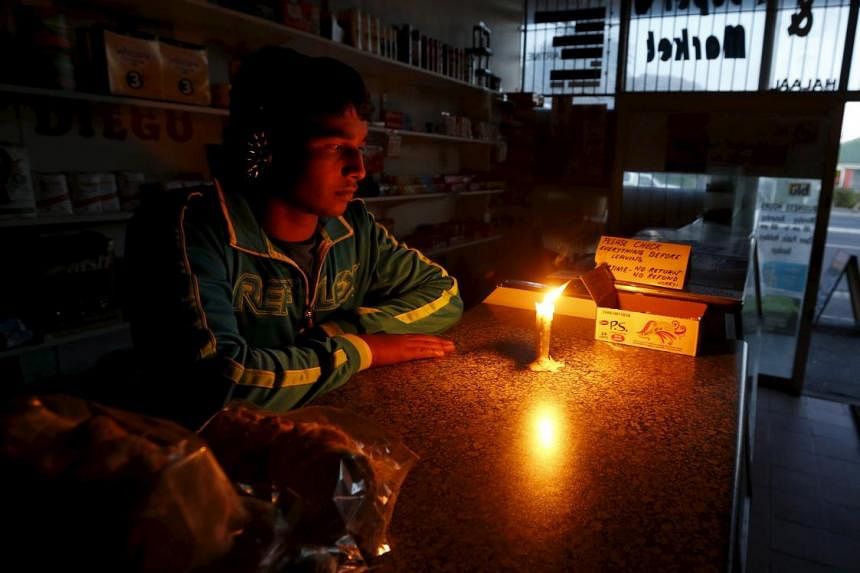JOHANNESBURG • In the darkened and chilly parking lot of a mall, a suburban family huddling around a shopping cart shared a snack on a Friday evening out.
After finding their favourite restaurant closed because of a blackout, Ms Buhle Ngwenya, with her two sons and two nephews, settled for meat pies from one of the few stores openin the mall.
"It's like death, this load-shedding," Ms Ngwenya, 45, said, referring to the blackouts imposed by South Africa's state utility to prevent a collapse of the national electricity grid.
With winter here in South Africa, the worst blackouts in years are plunging residents into darkness in poor townships andwealthy suburbs alike. The cut-offs have dampened South Africa's economy, Africa's second-biggest, and are expected to continue for another two to three years.
Despite a decade of strong economic expansion, sub-Saharan Africa is still far behind in its ability to generate something fundamental to its future - electricity - hampering growth andfrustrating its ambitions to catch up with the rest of the world.
All of sub-Saharan Africa's power- generating capacity amounts to less than South Korea's, and a quarter of it is unproductive at any given moment because of the continent's ageing infrastructure.
The World Bank estimates that blackouts alone reduce the gross domestic product of sub-Saharan countries by 2.1 per cent.
The crippling effect was recently on display in Nigeria, which overtook South Africa as the continent's biggest economy last year.
Nigeria's electrical grid churns out so little power that the country mostly runs on private generators. So when a fuel shortage struck this spring, a national crisis quickly followed, disrupting cellphone service, temporarily closing bank branches and grounding airplanes.
The power shortages and blackouts have cast a harsh light onelected officials, raising anger among voters for whom reliable electricity was supposed to be a dividend of democracy and economic growth.
Experts say the appointment of politically connected officials with little industry expertise at South African state utility Eskom has led to mismanagement, just as it has at other state-owned enterprises.
"It's not only a symbol of failure when the lights go off," said MrAnton Eberhard, an energy expert and a professor of management at the University of Cape Town.
"It's experienced directly by people. If you're about to cook or if your child is studying for an exam the next day and your lights go off, people feel this very directly. There is a very concrete and dramatic expression of failure."
South Africa's recent history of electrification is complicated and it has been the subject of fierce debate as the current blackout crisis has dragged on for several months. In the last years of apartheid, before a democratic government was elected in 1994, electricity reached only a third of households.
Under the African National Congress (ANC) - whose leaders have governed ever since, often promising free electricity and other services as part of the new democracy - 85 per cent of households now have electricity, a remarkable accomplishment by any standard.
President Jacob Zuma has forcefully rejected any blame for the energy crisis. The strain on the grid, he said, resulted from the burden of bringing light to millions of black households without power under white-minority rule.
"It is a problem of apartheid, which we are resolving," he said this year. But energy experts say that these South African households, many of them low-income, consumelittle electricity.
To Ms Ngwenya, who was sharing meat pies with her family in the parking lot, load-shedding was not only about electricity.
"For me, this is the biggest failure of the ANC," she said. "We even have a name for it, load-shedding. Why don't they say blackout once and for all?"
NEWYORKTIMES

